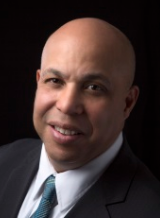Duff: Question of Employee Misclassification Is for Arbitrators
Monday, October 8, 2018 | 0
Months ago, I asked whether arbitrators would decide the scope of the gig economy.

Michael C. Duff
What I was getting at was that all of the sturm und drang over the misclassification (or perhaps “malclassification”) of employees might come to naught if employers took the next (obvious) logical step of requiring, as a condition of “hire,” that disputes over employee-status be submitted to arbitration, taking that threshold legal determination out of the hands of courts.
Not unexpectedly, the reaction I got from some readers was that my concern was perhaps a bit too arcane. As you can imagine, I was not surprised to see the U.S. 9th Circuit’s recent opinion in O’Connor v. Uber Techs, a case that simultaneously denied class certification of employment law plaintiffs (in this instance, alleged violations of the California Labor Code, which, incidentally, was the statute at issue in the Dynamex case) and forced the resulting individual claims into arbitration.
I realize the reaction to my use of the word “forced” will seem to some misplaced, since the theory of arbitration is that workers agreed to the process pre-hire. As a former, bona fide working person from the actual working class, I reject such silliness out of hand.
Workers usually have no idea what they are signing, and wouldn’t in the typical case have a real choice but to sign. Of course, just as was the case in my Harvard Law School contracts class, I acknowledge, as I must, that the law is what it is.
I will not dissect O’Connor here — it is one of the several predictable outcomes of Epic Systems — but I will merely point out that the case establishes the conditions for double-deference.
The first act of deference by the courts is allowing an arbitrator to decide if a worker is an independent contractor (one of the three substantive issues in O'Connor). If the worker is an independent contractor, then the questions of the underlying employment law controversies are, of course, resolved: The California Labor Code does not apply (note how this completely nullifies Dynamex).
But if the worker is an employee, and as a second act of deference, the arbitrator, not a court, will decide (in the case of employee classification), (1) what employee-status law applies (perhaps the arbitrator will wrongly apply Dynamex, when Borello should control); and (2) how the employment dispute will be decided under the law selected (perhaps the arbitrator will sloppily, or even inaccurately, march through the factors from the rule chosen).
The most important point in discussing arbitration of employment law disputes is that “mere errors” of law or fact are not good enough reasons for setting aside an arbitration award. The reason for this is that the scope of judicial review under the Federal Arbitration Act is incredibly narrow. An award is theoretically subject to being set aside if an arbitrator “manifestly disregards” the law, but there is a federal circuit split about what that means, and whatever it means it is clear that mere errors of law are not enough.
One of the most disturbing aspects of the emerging arbitral (not legal) world is that it will often be impossible to determine why an arbitrator found that a given individual was, or was not, found an employee (indeed, employers often insist upon confidentiality of arbitration awards).
There is no readily available source of arbitration awards. Prior awards, in contrast to common law legal decisions, would in any event have no binding effect on future arbitrators.
A recent story in Law 360 (paywall) adequately covers a number of potential consequences flowing from O’Connor, but, to state the obvious, employers will now make more and more use of arbitration in deciding thorny legal questions. O’Connor, not Dynamex, is this year’s most important employment law decision to emerge from California.
One final point: Employers in an economy in which it is increasingly easy to classify employees as independent contractors may come to resent dusty old workers’ compensation with its insistence on actually analyzing legal questions. How long do you think it will be before pressure mounts to bring this race to the bottom to the doorstep of workers' compensation?
Michael C. Duff is associate dean for student programs and external relations, and is professor of law, at the University of Wyoming College of Law. This entry is republished from the Workers' Compensation Law Professors blog, with permission.





Comments